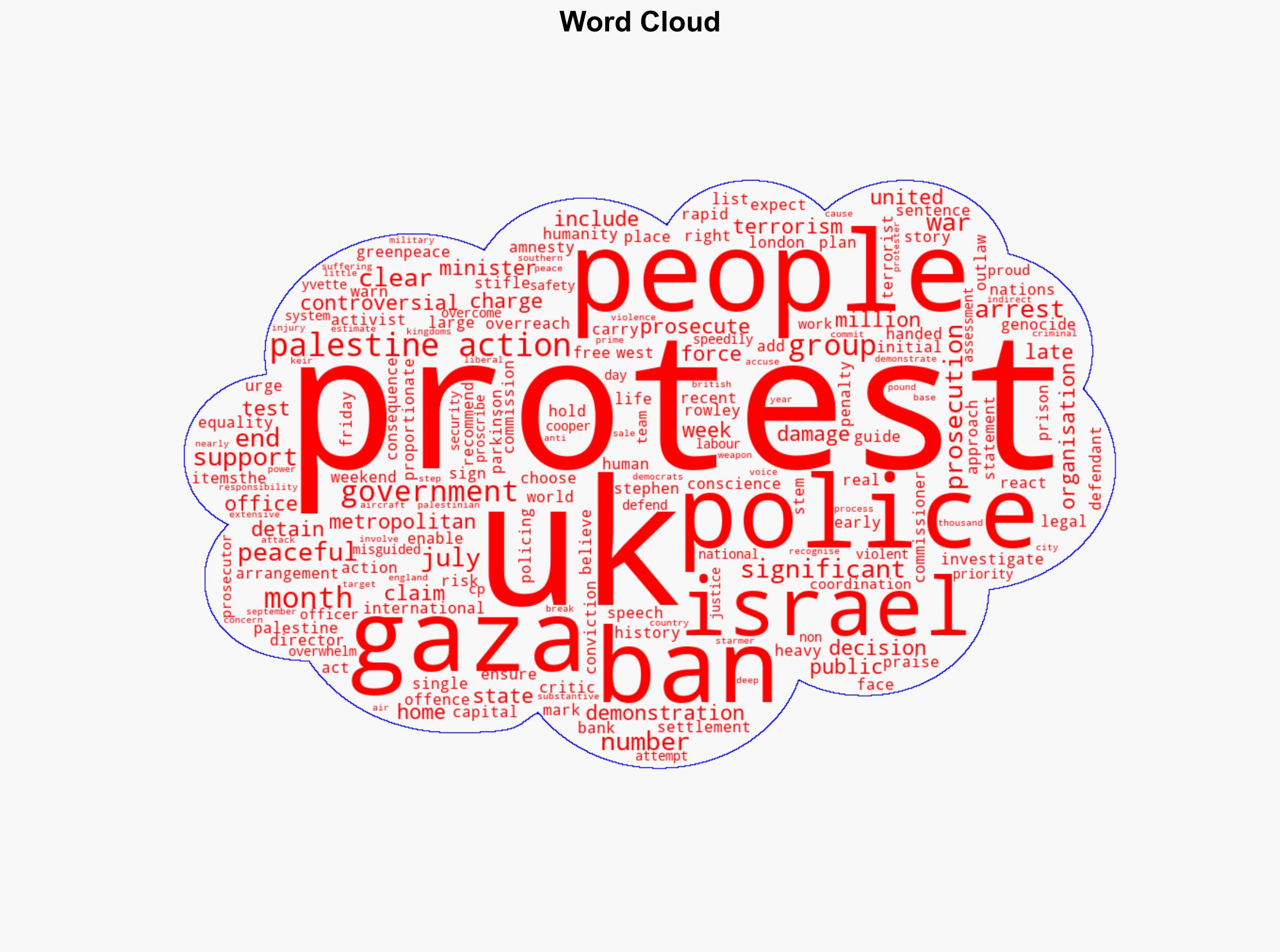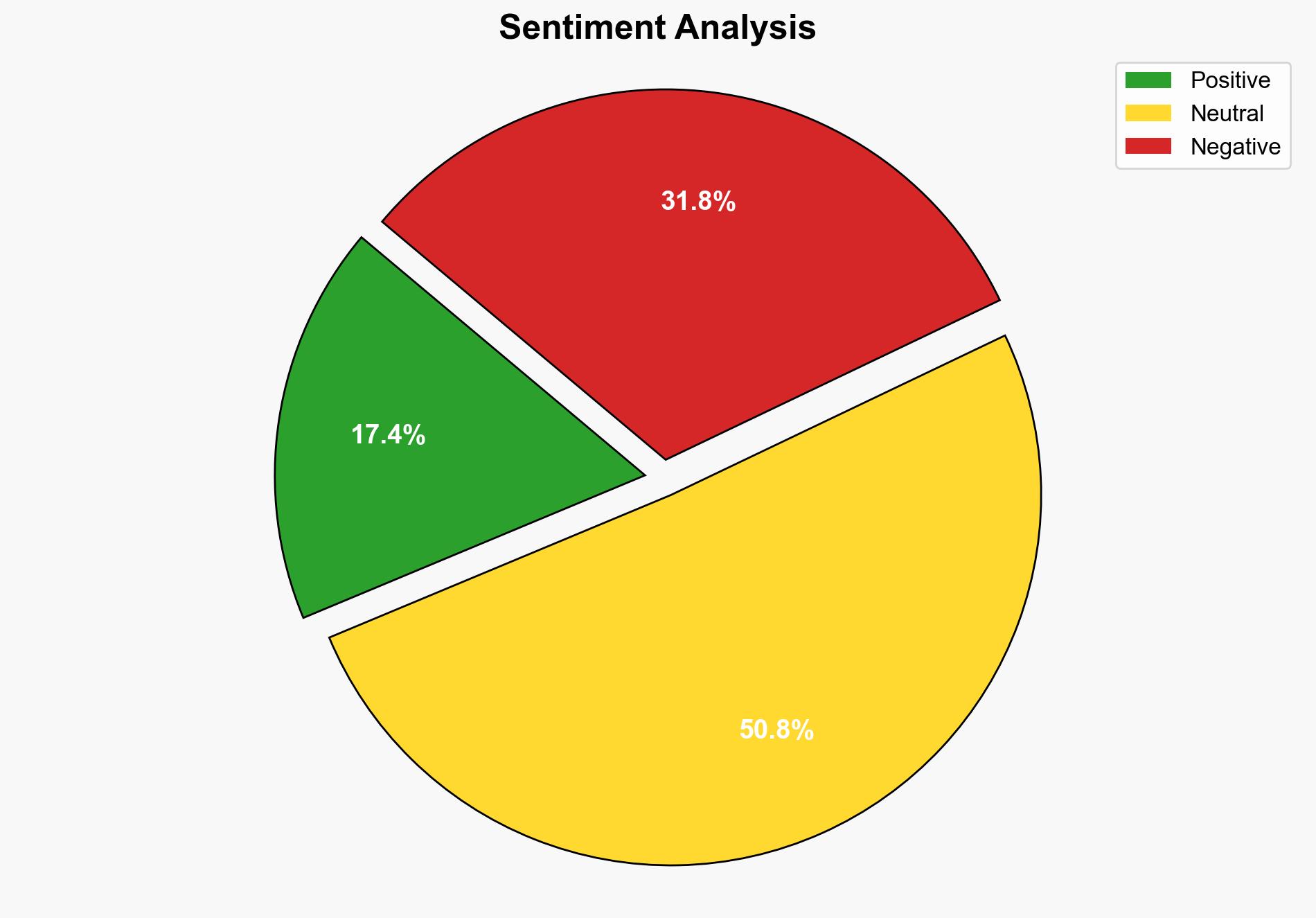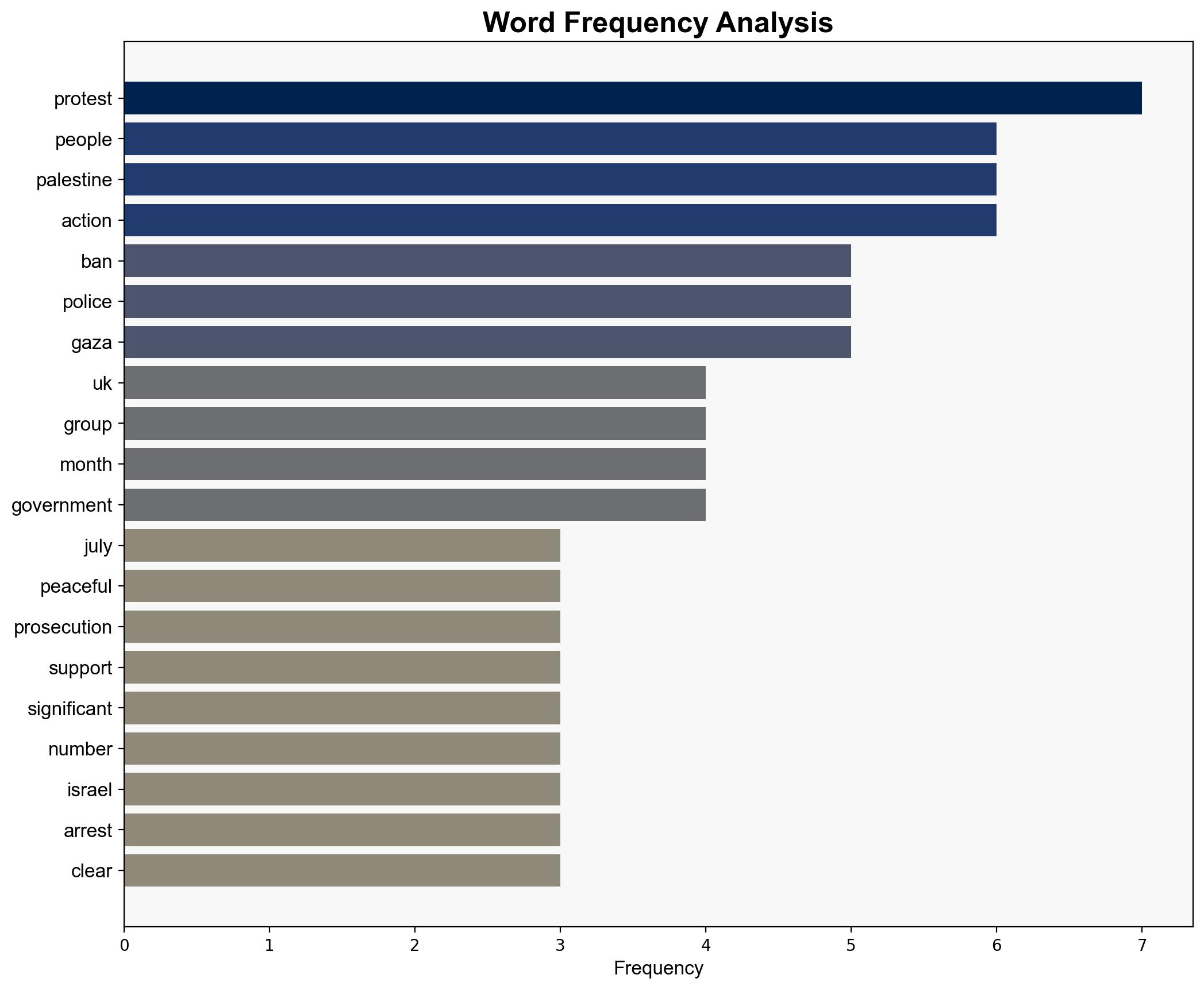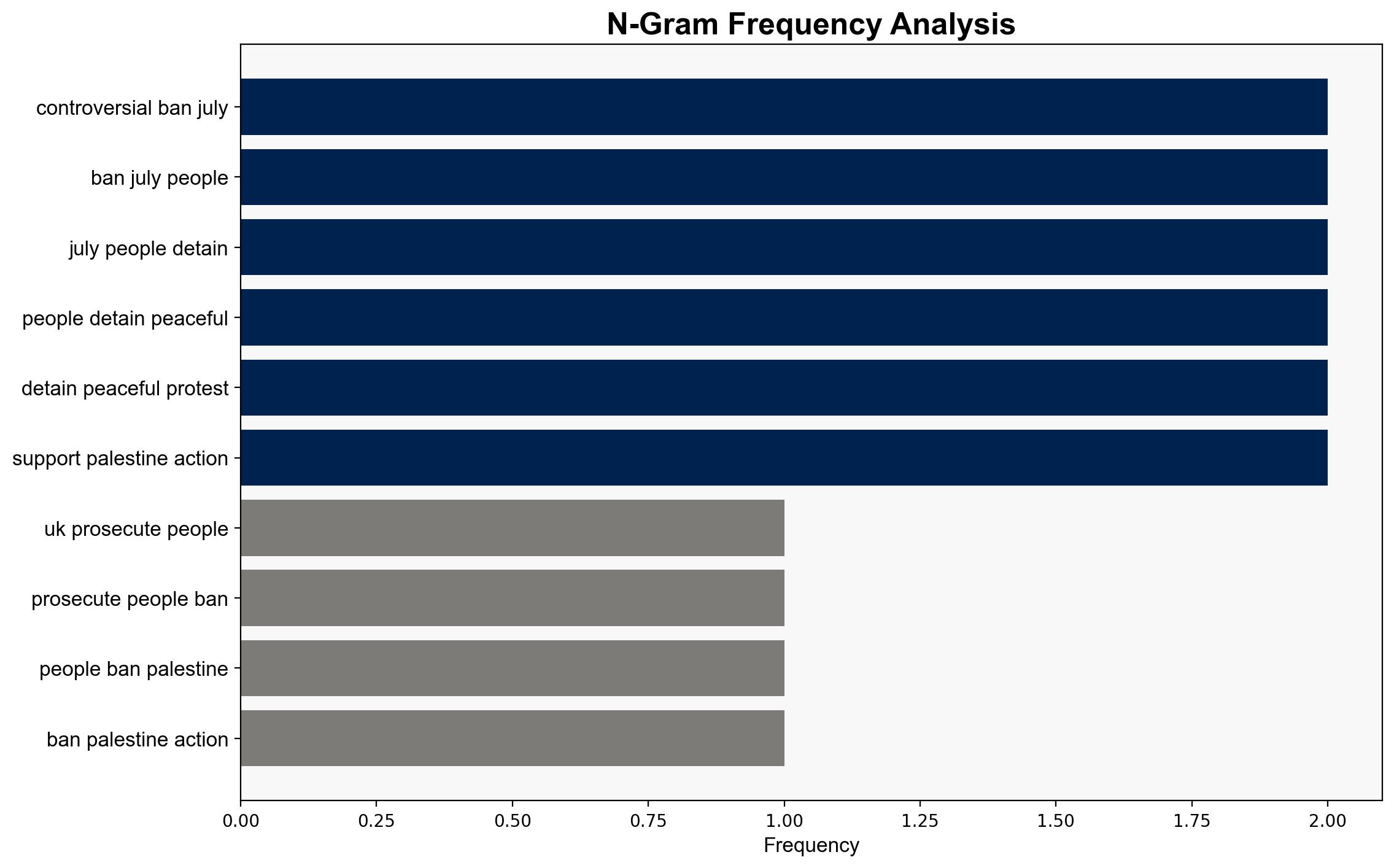UK to prosecute 60 more people for backing banned Palestine Action group – Al Jazeera English
Published on: 2025-08-15
Intelligence Report: UK to prosecute 60 more people for backing banned Palestine Action group – Al Jazeera English
1. BLUF (Bottom Line Up Front)
The UK government’s decision to prosecute individuals supporting the banned Palestine Action group is primarily driven by national security concerns. The most supported hypothesis is that the UK aims to deter further support for groups perceived as threats to security, despite potential overreach criticisms. Confidence level: Moderate. Recommended action: Monitor legal proceedings and public response to assess impacts on civil liberties and security perceptions.
2. Competing Hypotheses
1. **Hypothesis A**: The UK government is prioritizing national security by prosecuting individuals associated with Palestine Action to prevent potential threats and deter future support for the group.
2. **Hypothesis B**: The prosecutions are a strategic move to suppress dissent and limit free speech, potentially overstepping legal boundaries and risking backlash from civil rights organizations.
Using ACH 2.0, Hypothesis A is better supported due to the government’s emphasis on national security and public safety, as well as the legal framework used to justify the ban and subsequent prosecutions.
3. Key Assumptions and Red Flags
– **Assumptions**: The UK government assumes that Palestine Action poses a significant security threat. It also assumes that legal actions will effectively deter support without inciting further unrest.
– **Red Flags**: Criticisms from international bodies like the United Nations and Amnesty International suggest potential overreach. The rapid coordination between police and prosecutors may indicate a preemptive strategy rather than reactive.
4. Implications and Strategic Risks
– **Civil Liberties**: Prosecutions may lead to increased scrutiny on civil liberties and freedom of speech within the UK.
– **Public Backlash**: Potential for public protests and international criticism, which could strain UK diplomatic relations.
– **Security Dynamics**: If perceived as unjust, actions could radicalize individuals or groups, exacerbating security challenges.
5. Recommendations and Outlook
- **Mitigation**: Ensure transparent legal processes and clear communication to mitigate public backlash and maintain trust.
- **Opportunities**: Engage with civil society groups to address concerns and demonstrate commitment to balanced security measures.
- **Scenario Projections**:
– **Best Case**: Prosecutions deter further support for banned groups without significant public unrest.
– **Worst Case**: Legal actions lead to widespread protests and international condemnation, straining UK resources and reputation.
– **Most Likely**: Mixed reactions with localized protests and ongoing debates over civil liberties.
6. Key Individuals and Entities
– **Stephen Parkinson**: Director of Public Prosecution, involved in legal decisions.
– **Mark Rowley**: Metropolitan Police Commissioner, overseeing police actions.
– **Yvette Cooper**: Home Office Minister, defending government decisions.
7. Thematic Tags
national security threats, civil liberties, counter-terrorism, public dissent




